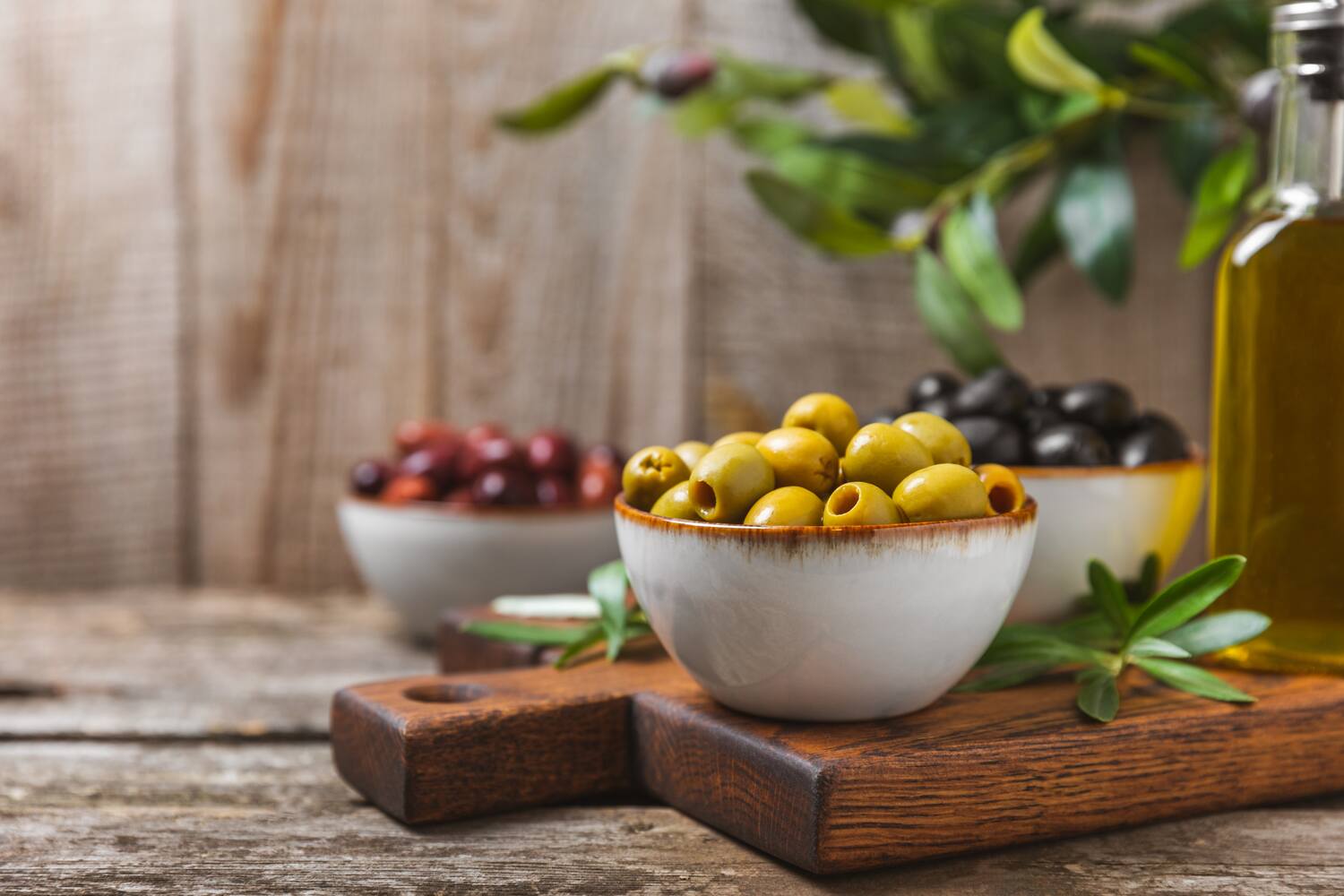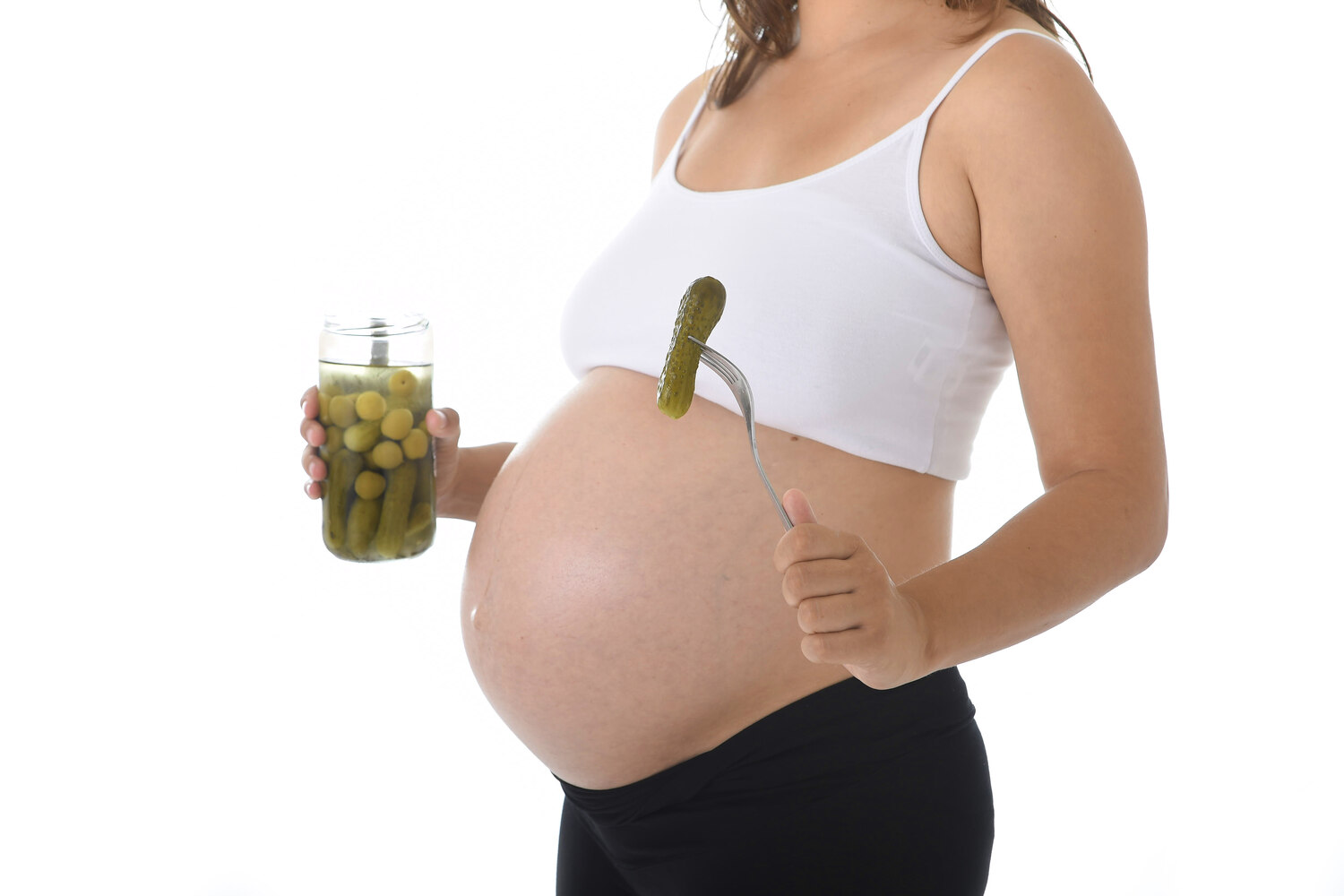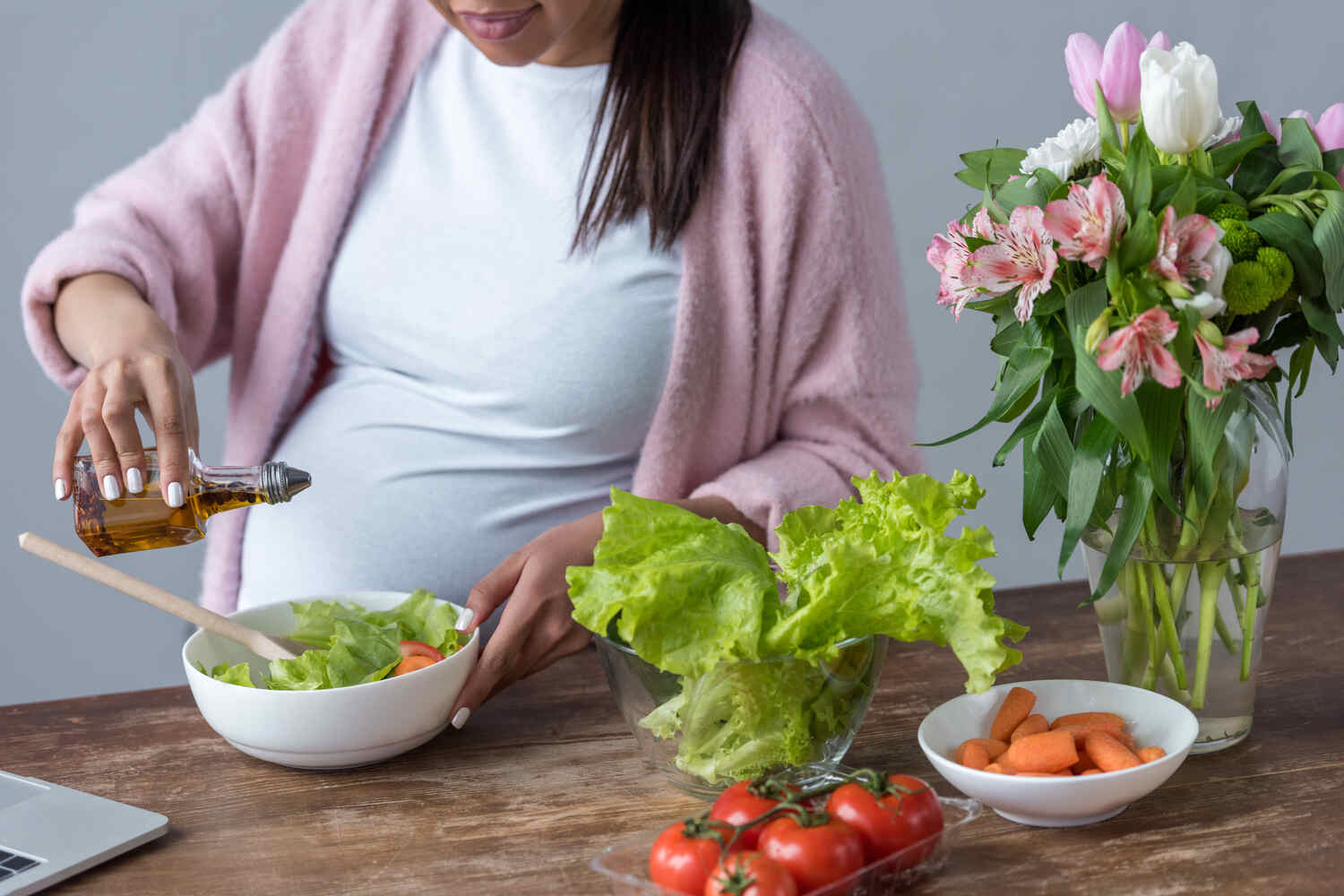
Can I Eat Olives During Pregnancy?
12 min readWritten by Editorial Team


Pregnancy is the most crucial phase of a woman’s life and is regarded as the second birth of the woman. Therefore, she must take a balanced and wholesome diet that has all the required vitamins and minerals. Olives during pregnancy turn out to be beneficial at this time, as they take care of the overall metabolism of the body.
Did you know fresh olives are bitter? Well, olives are fermented to make them edible. Read on to learn more about how you can eat olives during pregnancy, the different types, and their benefits. Moreover, we will also describe in detail the goodness of olive oil and its side effects.
In This Article
- Video of Olives During Pregnancy
- Nutritional Value of Olives
- What Are Olives?
- What Are the Various Types of Olives?
- Are Olives During Pregnancy Safe?
- Top Advantages of Olives During Pregnancy
- What Are the Side Effects of Olives During Pregnancy?
- Are Canned Olives Safe During Pregnancy?
- Nourishing Olive Oil During Pregnancy
- Types Of Olive Oils
- Is Olive Oil Safe During Pregnancy?
- Benefits of Olive Oil During Pregnancy
- Side Effects Of Olive Oil During Pregnancy
- FAQ’s
Video of Olives During Pregnancy
Nutritional Value of Olives
Olives are an extraordinary fruit for the reason that they contain loads of vitamins and nutrients. According to the USDA (1), one cup of olives contains:
| Nutrients | Value |
| Water | 102 g |
| Energy | 196 kcal |
| Protein | 1.39 g |
| Fat | 20.7 g |
| Carbohydrate | 5.18 g |
| Fiber | 4.46 g |
| Calcium, Ca | 70.2 mg |
| Magnesium, Mg | 14.8 mg |
| Potassium, K | 56.7 mg |
| Sodium, Na | 2100 mg |
| Selenium, Se | 1.22 µg |
| Folate, total | 4.05 µg |
| Choline, total | 19.2 mg |
| Vitamin A | 27 µg |
| Carotene, beta | 312 µg |
| Lutein + zeaxanthin | 688 µg |
[Read: Copper During Pregnancy]
What Are Olives?
Olives derive from the olive tree. They are important ingredients in a variety of Mediterranean cuisines. You may use them whole or slice them into dishes. Or, you can also press them into oil. You may find many varieties of olives in supermarkets. They can be found canned or bottled in salt solutions or plain water. You might be able to find fresh olives in a high-end supermarket or a Mediterranean specialty store, depending on where you live.
Olives ripen at different rates. Depending on what they will be used for, olives are picked at different times. For example, olives that will be processed as green olives will be picked when they are fully grown but still green. You can also leave olives on trees for longer until they are ready to be picked. As olives mature, the fat content of the olive flesh increases and the water content decreases; hence, green olives have a lower fat content than black olives (2). People don’t usually eat fresh olives because they are so bitter. Instead, olives are fermented and cured before consumption.
What Are the Various Types of Olives?

Mediterranean cuisine makes extensive use of olives, which come in many varieties. Their flavors, appearances, and applications vary, but their fundamental qualities remain identical. Following are six types of olives you may come across:
1. Kalamata Olives
People think of these as the kings of the olive family. These dark purple olives are shaped like almonds and have shiny skin. They are often used in red wine. There is a lot of salt in Kalamata olives (3). When eaten in moderation, Kalamata olives are good for you.
2. Castelvetrano Olives
These are bright green, have a mild flavor, and are commonly served with white wine. They have a firm and meaty texture, which sets them apart from other olive varieties. The flesh is not as wrinkled as some other types of olives.
3. Cerignola Olives
These olives might be green or red, depending on their maturity. They are not very bitter and have a delicate sweetness that many consumers enjoy. Because of their big size, people also like to stuff them with different things, like cheese, garlic, etc.
4. Nyon Olives
Nyon olives originate from the south of France. These olives are jet-black in color and aromatic in flavor. In Mediterranean cooking, nyons olives are important. Their strong flavor goes well with lemon, garlic, and herbs.
5. Gaeta Olives
Gaeta olives are relatively small in size, and their shape can vary from oval to round. They are either dry-cured or brine-cured and are purplish brown, and small. These olives are known for their rich, fruity flavor.
6. Manzanilla Olives
Manzanillas are crisp in texture and have an almond flavor. These olives have a mild and briny taste, with a slight bitterness. The flavor is not as intense as that of some black olives, making Manzanilla olives versatile and more appealing. These are usually served with alcoholic beverages or as an appetizer.
Are Olives Safe During Pregnancy?

Olives are generally considered safe to eat during pregnancy when consumed in moderation. Olives contain oleic acid. Oleic acid is responsible for reducing blood cholesterol levels (4). Olives significantly enhance the nutritional value of a woman’s diet by supplying vital vitamins and fatty acids that promote the well-being of the fetus.
There is one concern, though. As a result of brining or curing, olives may contain a significant amount of sodium. Too much sodium during pregnancy may contribute to high blood pressure or fluid retention. It’s advisable to consume them in moderation and be mindful of your overall sodium intake.
Top Advantages of Olives During Pregnancy

Although olives may not be considered a mandatory component of pregnancy-specific dietary guidelines, incorporating them into a well-balanced diet can be beneficial. Olives can play a positive role in the nourishment of the unborn baby as well as the mother by providing all the vital vitamins and minerals.
Following are some of the amazing benefits of enjoying olives during pregnancy:
1. Act as Antioxidants
Olives contain antioxidants, such as vitamin E and polyphenols, which help protect cells from oxidative stress. This protection is important during pregnancy to support the overall health of both the mother and the developing fetus.
2. Contributes To Overall Folate Intake
Folate (or folic acid) is a crucial nutrient during pregnancy as it helps prevent neural tube defects in the developing fetus (5). While olives are not exceptionally high in folate, they contribute to overall folate intake when included as part of a varied diet.
3. Helps To Prevent Anemia
Olives contain minerals such as iron and copper, which are important for the formation of red blood cells. Thus, eating olives during pregnancy may contribute to preventing anemia, one of the most common issues during pregnancy.
4. Helps To Maintain The Blood Pressure Level
Olives, particularly black olives, can be beneficial for blood pressure regulation due to their potassium content. Potassium is needed for proper fluid balance and to lower the effects of sodium (6), which is another mineral that can cause high blood pressure. Potassium dilates blood vessels. This lowers blood pressure and flow resistance. Maintaining healthy blood pressure levels is essential during pregnancy to reduce the risk of complications.
5. Provides Benefits Of Fiber
Olive’s fiber content is beneficial during pregnancy. Dietary fiber offers numerous benefits for pregnant women. Consuming this product during pregnancy can support healthy digestion as well as provide essential nutrients like vitamin B groups. It can also assist in managing weight gain during pregnancy and help regulate blood glucose levels. Additionally, it aids in preventing constipation and reduces the risk of cardiovascular disease during pregnancy (7).
What Are the Side Effects of Olives During Pregnancy?

Following are some possible side-effects of olives during pregnancy:
- Even though rare, olives can trigger allergic reactions (8). Allergic reactions during pregnancy can be more challenging
- Although the risk is low, olives, especially those that are unpasteurized or homemade, may carry a risk of Listeria contamination. Listeria infection can be harmful during pregnancy.
- Some olives, especially those that are brine-cured or pickled, can be high in sodium (9). Excessive sodium intake may contribute to water retention and high blood pressure, which can be a concern during pregnancy.
- Olives are full of calories and their excessive consumption contributes to unnecessary weight gain during pregnancy.
- Olives contain fiber, which can be beneficial for digestion. However, in some cases, an increase in fiber intake may lead to digestive discomfort
Are Canned Olives Safe During Pregnancy
Canned olives are generally considered safe to eat during pregnancy, provided they are consumed in moderation and with attention to certain considerations. Canned olives are typically processed and pasteurized, which helps eliminate potentially harmful bacteria and reduce the risk of foodborne illnesses. The canned olives have an adequate amount of vital elements and render the same effects as others. One just has to check for the expiration date and reputed brand. Even though it is safe, if available, pregnant women must ensure that they take only fresh olives to satisfy their pregnancy cravings.
Nourishing Olive Oil During Pregnancy

Olive oil is a popular and widely used cooking oil that is extracted from olives. Olive oil is obtained by crushing olive fruits with a process called maceration. It is known for its distinctive flavor, versatility, and various health benefits. Olive oil is also used in cosmetics and medicine.
Types Of Olive Oils
There are various types of olive oil available on the market. Understanding the differences in flavor profiles and smoke points among these types of olive oil allows for precise selection based on culinary needs. Whether enhancing the taste of a salad or handling high-temperature cooking, the right choice of olive oil can elevate your dishes.
The kinds of olive oils you come across are as follows:
1. Extra Virgin Olive Oil (EVOO)
- It is the highest-quality olive oil, extracted through cold pressing without heat or chemicals.
- It has a rich flavor and often exhibits a distinctive aroma.
- Extra-virgin olive oil is commonly used in salad dressings to add flavor and richness.
- Suitable for low to medium-heat cooking.
- Extra virgin olive oil must have a low acidity, typically less than 0.8% (10). This low acidity level indicates a superior-quality oil.
- Generally more expensive due to its higher quality and the strict standards governing its production.
2. Virgin Olive Oil
- While also of high quality, virgin olive oil may have slightly higher acidity compared to extra virgin olive oil. When it comes to production guidelines, they are not as strict as extra virgin olive oil.
- It tastes gentler than extra-virgin olive oil. Although it is often milder, it retains the unique flavor of olives.
- It can be used for various kinds of cooking at medium temperatures. You may use it for grilling, baking, and sautéing.
- A little more budget-friendly than EVOO
3. Pure Olive Oil
- A blend of virgin and refined olive oils.
- It undergoes some processing to remove impurities and improve its stability.
- It has a milder flavor than extra-virgin olive oil.
- Even though the word “pure” makes you think of better standards, this oil is processed more than virgin or extra virgin oils.
- More acidic than virgin or extra virgin oils
- Suitable for higher-heat cooking due to its higher smoke point.
4. Light Olive Oil
- The word “light” in olive oil might be misleading. Instead of fewer calories or fat, it means a gentler flavor and a lighter color.
- Light olive oil is typically a blend of refined olive oil and a small amount of virgin or extra virgin olive oil.
- Filtration and sometimes heating are used in the refining process to get rid of impurities.
- It is used for frying and cooking at higher temperatures due to its higher smoking point.
- Light olive oil is usually more affordable than other varieties.
Is Olive Oil Safe During Pregnancy?
Olive oil is generally considered safe for consumption during pregnancy when used in moderation. Olive oil is generally considered safe for consumption during pregnancy when consumed in moderation. Opt for high-quality olive oil from reputable sources to ensure purity and authenticity. For pregnant women, extra-virgin olive oil is the best option.
Benefits of Olive Oil During Pregnancy

Olive oil can be a good source of additional calories and healthy fats to support your energy needs and the baby’s development. Its distinctive flavor can help enhance the taste of nutrient-rich foods, making it easier to maintain a balanced and nutritious diet during pregnancy. Here are some benefits of using olive oil during pregnancy:
1. Reduce The Risk Of Cardiovascular Diseases
Lipid metabolism undergoes complex changes during pregnancy. During pregnancy, there is an increase in total cholesterol levels, which includes both high-density lipoprotein (HDL) and low-density lipoprotein (LDL) particles. Additionally, triglyceride levels also rise, with the highest levels typically occurring during the second trimester (11). Olive oil is a great source of monounsaturated fats (12). Monounsaturated fats are well-known for their ability to support heart health. Consuming monounsaturated fats can be beneficial for reducing LDL (bad cholesterol) levels and increasing HDL (good cholesterol) levels. This, in turn, can help in the prevention of cardiovascular disease (13). It is crucial to prioritize heart health for both the mother and the developing fetus during pregnancy.
2. Helps With Fetal Brain Development
Olive oil is rich in omega-3 fatty acids (14). Omega-3s play a crucial role in the development of the fetal brain and eyes (15) and can also enhance cognitive function. Eating olives during pregnancy may thus contribute to favorable outcomes for the neurological development of the baby.
3. Provides Power of Antioxidants
Olive oils are known to be a rich source of valuable bioactive compounds (16). Olive oil provides antioxidant protection due to its high content of polyphenols. Antioxidants play a crucial role in safeguarding cells against oxidative stress and inflammation (17). It is crucial to prioritize protection during pregnancy to promote overall health and reduce the likelihood of complications.
4. Helps To Enhance Bone Health Of Mother
Olive oil is beneficial for bone health (18). A mother’s calcium requirements are increased throughout pregnancy to accommodate the developing fetus. When the body’s calcium intake falls short, it starts drawing extra calcium from the bones (19). This increases the risk of osteoporosis in the future. Olive oil helps to increase bone density (20).
5. Provides the benefits of anti-inflammatory properties
Olive oil possesses anti-inflammatory properties due to its polyphenols (21). Inflammation is a natural bodily response, but when it becomes chronic, it can contribute to a range of health issues. The consumption of olive oil has been found to have potential benefits in regulating inflammation, which can create a more favorable environment for both the mother and the developing fetus.
6. Good for skin
Olive oil is an excellent choice for hydrating the skin (22), as it effectively moisturizes the pores, eliminates dead skin cells, and revitalizes the skin. Applying olive oil to the skin can help reduce the appearance of stretch marks.
Side Effects Of Olive Oil During Pregnancy

Olive oil is generally considered safe to consume and use topically during pregnancy. However, it is important to remember that moderation is key when it comes to any food pregnancy. Excessive consumption or use may lead to potential issues. Following are some of the side effects of olive oil during pregnancy:
- Since olive oil is high in calories, excessive consumption will pave the way for excessive weight gain.
- Some people with GERD or acid reflux, may feel their symptoms worse after eating olive oil.
- When olive oil is exposed to heat and light for a long time, it can oxidize. This lowers its quality and may cause dangerous compounds to form.
- Too much fat, like olive oil, may make it harder for your body to absorb fat-soluble vitamins. This could compromise the nutrient intake during pregnancy.
- Some people are allergic to olive oil, but not very often. Skin rashes, itching, or even more serious reactions can happen to some people.
Let’s conclude that It is an undeniable fact that olives during pregnancy promote the healthy development of the mother as well as the baby. Therefore, never hesitate to include it in your pregnancy diet.
[Read: Mushroom During Pregnancy]
FAQ’s
1. Why Do Pregnant Women Crave Olives?
Olives have a distinct taste that could be soothing for some pregnant women. If you are craving the salty variety, your body might be building up on sodium. If your blood pressure is already high in pregnancy, opt for a different variety.
2. Can Eat Olives During Pregnancy Help the Unborn Child?
Olives are rich in antioxidants. This can protect your unborn child from asthma or allergies after birth.
3. Can Olives Help With Morning Sickness?
Olives are well-known home remedies for motion sickness. They help to alleviate stomach discomfort too. You can try olives and see if they help with your morning sickness. They are healthy anyway.
4. Does a Craving for Olives During Pregnancy Indicate I Am Carrying a Boy?
It’s an old wives tale that if you are carrying a boy, you will crave salty or savory foods. Olives can have a salty taste and they are not sweet. Hence, people relate this craving to gender.
5. Is Extra Virgin Olive Oil Good for Pregnancy?
For pregnant women, extra virgin oil has an excellent impact on keeping bad cholesterol under control. Olive oil provides a permanent solution to the problem of arterial thrombosis. It also balances the blood circulation in the heart.
Read Also: Tomatoes During Pregnancy – Is It Safe To Eat?
Reference
- Olives, green – [https://fdc.nal.usda.gov/fdc-app.html#/food-details/1103679/nutrients]
- Table olives and health: a review – [https://www.ncbi.nlm.nih.gov/pmc/articles/PMC7737178/]
- Kalamata Olives – [https://www.nutritionix.com/food/kalamata-olives]
- Oleic Acid – [https://www.sciencedirect.com/topics/agricultural-and-biological-sciences/oleic-acid]
- Neural Tube Defects, Folic Acid and Methylation – [https://www.ncbi.nlm.nih.gov/pmc/articles/PMC3799525/]
- Reducing sodium and increasing potassium may lower risk of cardiovascular disease – [https://www.hsph.harvard.edu/news/press-releases/reducing-sodium-and-increasing-potassium-may-lower-risk-of-cardiovascular-disease/]
- Pregnant women have inadequate fiber intake while consuming fiber‐rich diets in low‐income rural setting: Evidences from Analysis of common “ready‐to‐eat” stable foods – [https://www.ncbi.nlm.nih.gov/pmc/articles/PMC6804770/]
- Food allergy due to olive – [https://pubmed.ncbi.nlm.nih.gov/20128426/]
- Table olives and health: a review – [https://www.ncbi.nlm.nih.gov/pmc/articles/PMC7737178/]
- Bioactive Compounds and Quality of Extra Virgin Olive Oil – [https://www.ncbi.nlm.nih.gov/pmc/articles/PMC7466243/]
- Cardiovascular Complications of Pregnancy – [https://www.ncbi.nlm.nih.gov/pmc/articles/PMC4632731/]
- Oleic acid, the main monounsaturated fatty acid of olive oil, suppresses Her-2/neu (erbB-2) expression and synergistically enhances the growth inhibitory effects of trastuzumab (Herceptin) in breast cancer cells with Her-2/neu oncogene amplification – [https://pubmed.ncbi.nlm.nih.gov/15642702/]
- Monounsaturated Fat – [https://www.sciencedirect.com/topics/biochemistry-genetics-and-molecular-biology/monounsaturated-fat]
- Oil, olive, salad or cooking – [https://fdc.nal.usda.gov/fdc-app.html#/food-details/171413/nutrients]
- Omega-3 Fatty Acids and Pregnancy – [https://www.ncbi.nlm.nih.gov/pmc/articles/PMC3046737/]
- Chapter 26 – Antioxidant activity in olive oils – [https://www.sciencedirect.com/science/article/abs/pii/B9780128195284000316]
- Free Radicals, Antioxidants in Disease and Health – [https://www.ncbi.nlm.nih.gov/pmc/articles/PMC3614697/]
- Olive oil in the prevention and treatment of osteoporosis after artificial menopause – [https://www.ncbi.nlm.nih.gov/pmc/articles/PMC4259560/]
- Calcium: A Nutrient in Pregnancy – [https://www.ncbi.nlm.nih.gov/pmc/articles/PMC5561751/]
- Olives and Bone: A Green Osteoporosis Prevention Option – [https://www.ncbi.nlm.nih.gov/pmc/articles/PMC4997441/]
- Olive Polyphenols: Antioxidant and Anti-Inflammatory Properties – [https://pubmed.ncbi.nlm.nih.gov/34209636/]
- The use of olive oil for skin health in a Saudi population: A cross-sectional study – [https://www.ncbi.nlm.nih.gov/pmc/articles/PMC8991441/]

Editorial Team,
With a rich experience in pregnancy and parenting, our team of experts create insightful, well-curated, and easy-to-read content for our to-be-parents and parents at all stages of parenting.Read more.
Responses (0)
Want curated content sharply tailored for your exact stage of parenting?
Related articles

Smelly Urine During Pregnancy – Is it Normal And Tips To Manage

Energy Drinks While Pregnant

Seaweed During Pregnancy – Is it Safe Have, Health Benefits and Risk Associated

Empowering Expectant Mothers: Guidelines for Progesterone Cessation

Incomplete Abortion – Causes, Symptoms & Risks

Vitamin B12 During Pregnancy – Importance and Vegetarian Sources
Sponsored content
Discover great local businesses around you for your kids.
Get regular updates, great recommendations and other right stuff at the right time.





